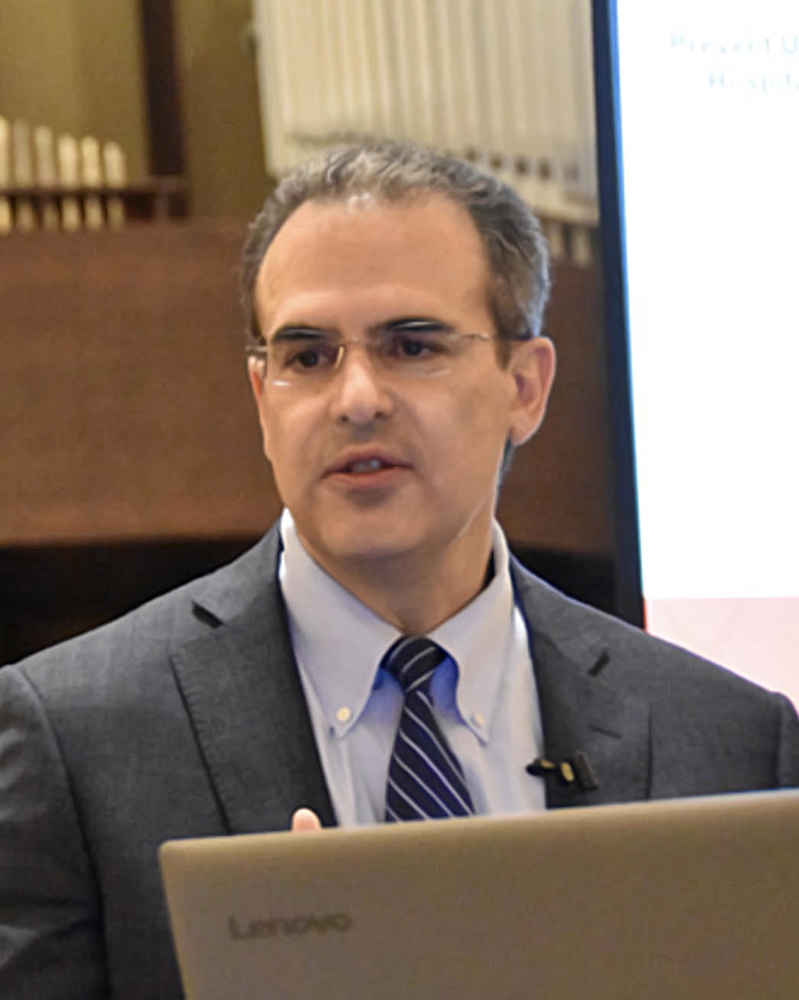Palliative Care Issues: A Catholic Moral Road Map

Dr. Paul Fiacco
The first article of this series discussed the empowerment of Catholics in a new ministry that will help others understand Catholic end-of-life moral issues, particularly the value of palliative care in order to help individuals avoid the senseless choice of physician-assisted suicide.
These articles aim to combine spiritual care with medical care; this will provide a holistic approach to the difficulties of end-of-life issues and decisions. We will also discuss the Catholic vision of life and how an understanding of this vision serves as a backdrop to assist individuals in making end-of-life decisions.
A Moral Road Map
To begin, we as Catholics recognize that our ultimate destiny is to be with God for eternity. Further, we see life as a gift from God and that as such, we are stewards and not the owners of that gift of life. Catholic moral theology provides us with a road map for exercising that stewardship. It cautions us to avoid the two extremes of vitalism and subjectivism when dealing with end-of-life issues.
The first extreme, vitalism, holds that life must be preserved at all costs and that all available treatments must be used to keep the patient alive. This position is in conflict with Church teaching because we believe that our ultimate goal is eternal life. Thus, there comes a time in our illness when we must embrace our human frailty with profound hope in the life that is to come.
The second extreme, subjectivism, holds that life has value only if the individual person assigns it value. This position permits individuals to end their lives when individuals subjectively determine that their lives have no value. It is in conflict with Church doctrine because we believe that all human life is a sacred gift from God and we are stewards of that gift of life. Suicide and euthanasia are never morally acceptable options.
Catholic theology guides us between these two extremes as we deal with more specific dimensions of end-of-life decisions, while upholding our moral teachings.
Medical research
Questions frequently arise about where medical research fits in this road map. We begin by recognizing that a great deal of progress has been made as the result of medical research. The Church recognizes these advances and permits patients to participate in medical trials in light of the potential benefit the research treatment may have. For a patient to participate in such medical research, the Church requires that the patient be thoroughly advised of the risks and benefits of the treatment. The patient must also give informed consent in order to participate in such research.
Summary
The Catholic vision of life recognizes that our ultimate destiny is to be with God for eternity. Catholic moral theology provides a road map to navigate the complexities of end-of-life moral dilemmas; it requires that we avoid the extremes of vitalism and subjectivism. Medical research is integrated into this Catholic vision for life.
Next Article
The next article will deal with one of the most important distinctions Catholics need to make in navigating between vitalism and subjectivism: the distinction between ordinary care, which is morally obligatory, and extraordinary care, which is not morally obligatory.
Dr. Paul Fiacco is the president and medical director of CNY AIM, a St. Joseph Health clinically integrated network, and is also the medical director of the Trinity Health Integrated Care ACO as well as a full-time family physician at CNY Family Care in East Syracuse. He is a parishioner at Holy Cross Church in DeWitt, New York.
The Rev. Charles Vavonese, a retired priest of the Diocese of Syracuse, is the associate chaplain for the Syracuse Region of the Order of Malta and the author of "I Am the Resurrection and the Life, " a resource booklet dealing with end-of-life moral issues. He currently serves patients receiving palliative care as the chaplain for the St. Joseph Health Mobile Integrated Services Team. In addition, he assists on weekends at Holy Cross Church in Dewitt, New York.
